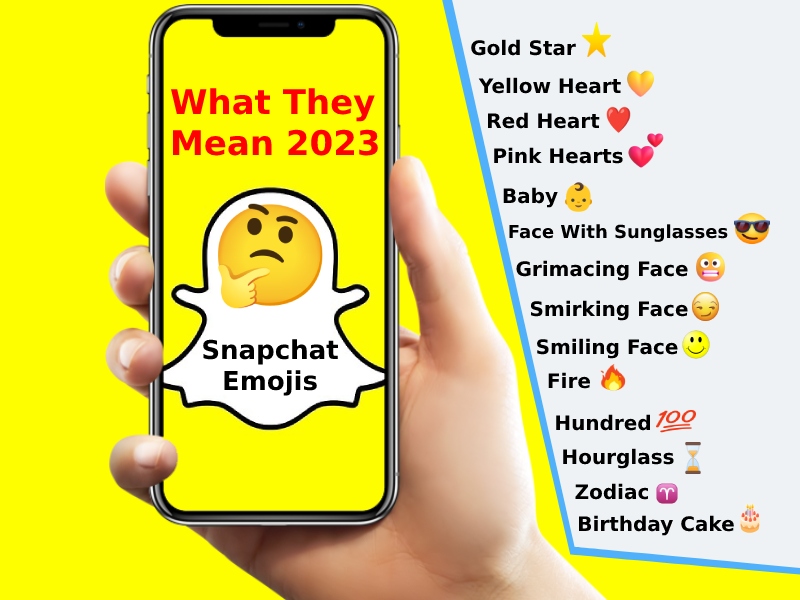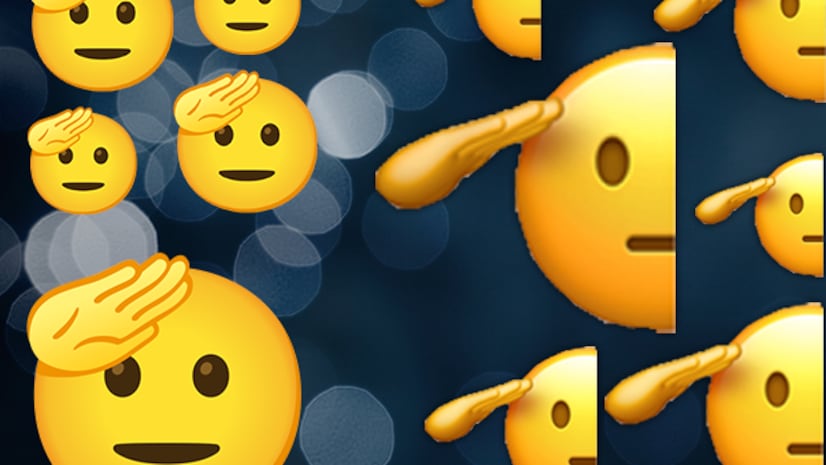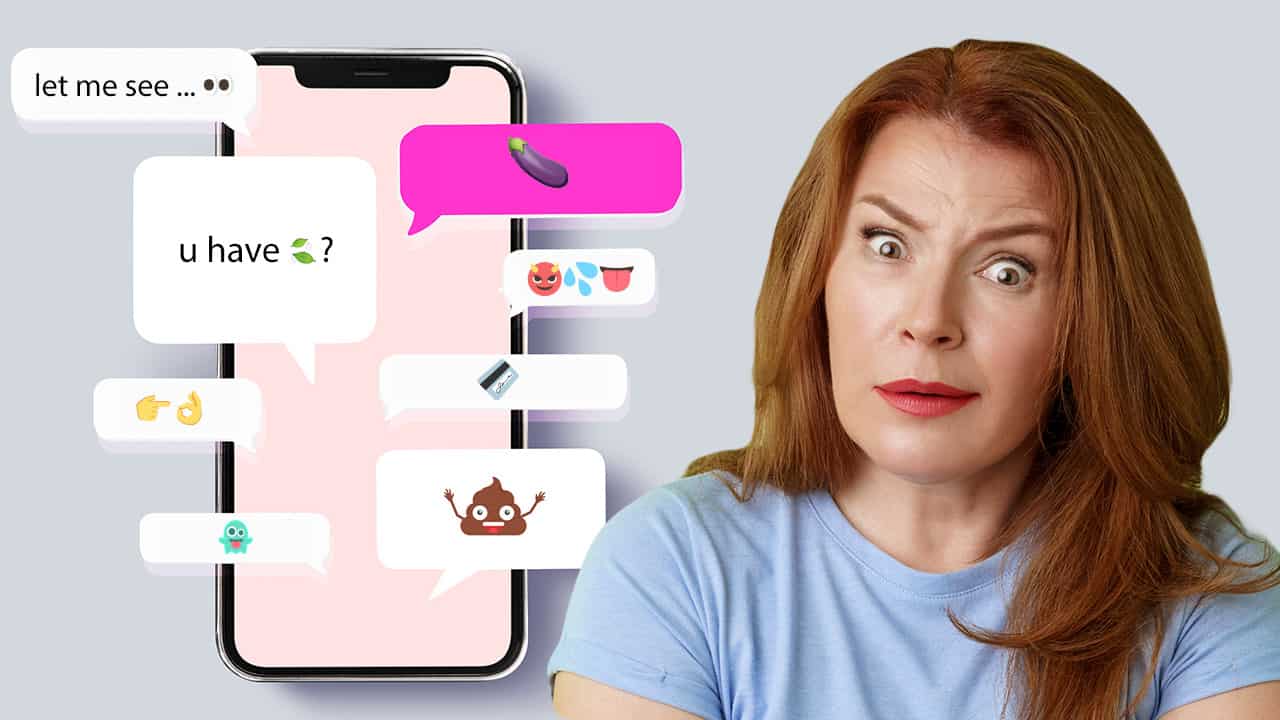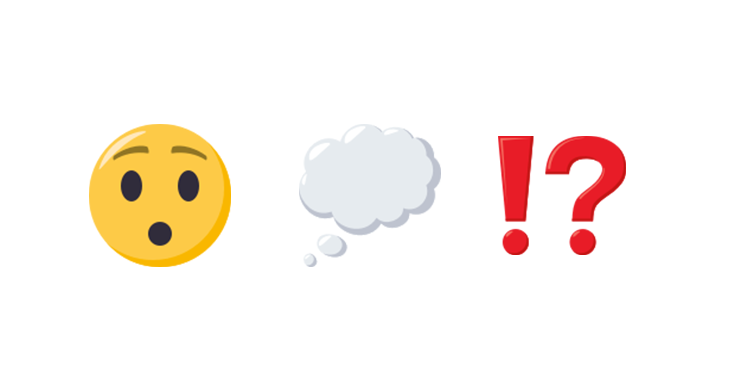Emojis have become an integral part of our digital communication. These small, pictorial symbols and characters are used to express emotions, convey messages, and add a touch of fun and personality to our texts and social media posts. From the humble smiley face to the ever-expanding collection of emojis representing people, objects, animals, and more, there seems to be an emoji for almost every situation.
- Emoji Sunglasses: A Comprehensive Guide to Their Meaning and Usage
- The Fascinating World of Emoji: Uncovering the Meaning Behind the Lip Emoji
- The Meaning of Different Hearts Symbolism and Significance
- Emoji Meanings Love: Unique meaning that adds depth to our messages
- The Colorful Canvas of Heart Emojis: Unveiling the Meaning Behind Each Hue
But have you ever stopped to think about the true meaning behind these little icons? While some may seem obvious, others may leave you scratching your head in confusion. In this comprehensive guide, we will unlock the true meanings behind all emojis, giving you a better understanding of their origin, usage, and hidden connotations. So, let’s dive into the world of emojis and discover what they really mean.
The History of Emojis: From Japan to the World
In today’s digital age, it’s hard to imagine a world without emojis. But did you know that these tiny icons actually have a rich history dating back to the late 1990s? The term “emoji” is derived from the Japanese words “e” (picture) and “moji” (character). In the late 1990s, Japanese engineer Shigetaka Kurita created the first set of emojis while working for mobile operator NTT DoCoMo. Initially, these emojis were designed as a way to communicate information more effectively on small screens.
The original set of emojis consisted of 176 characters, including the now-famous heart, smiley face, and sun icons. However, it wasn’t until Apple released the first iPhone in 2007 that emojis gained widespread popularity. As other tech companies followed suit and started incorporating emojis into their devices, the use of these pictorial characters exploded. Today, emojis have become a universal language, transcending cultural and language barriers.
The Evolution of Emojis: From Basic to Diverse
As emojis continued to gain popularity, tech giants such as Apple, Google, and Microsoft started expanding their collections to include a wider variety of characters. What started with simple smileys and objects has now grown into an extensive collection of over 3,000 emojis, including animals, food, sports, professions, and more. With each new software update, we are introduced to even more diverse and inclusive emojis, reflecting the ever-changing world we live in.
But it hasn’t always been smooth sailing for emojis. In 2015, Apple released a new set of diverse skin tone options for emojis, sparking a debate about race representation and inclusivity. Since then, there have been constant efforts to make emojis more diverse and reflective of different cultures and identities. In 2020, for example, we saw the addition of gender-neutral emojis and emojis representing people with disabilities. This evolution of emojis not only reflects our society’s changing norms but also highlights the power and impact of these tiny icons.
The Global Popularity of Emojis
Emojis have come a long way from their origins in Japan and have now become a global phenomenon. While they may have started as a way to communicate more effectively on small screens, emojis now hold a significant place in our digital communication. According to a report by Adobe, 82% of internet users in the US use emojis, with 69% of them using emojis every day. Furthermore, emojis have been found to increase engagement and open rates in marketing emails, making them a valuable tool for businesses as well.
The widespread use of emojis can also be seen in social media platforms, where users have the option to react to posts using emojis. On Instagram, for example, the most popular emoji used in 2020 was the crying laughing face, followed by the red heart and the fire emoji. This just goes to show that emojis have become an integral part of our online communication, with people using them to express their emotions and reactions.
Understanding Emojis: Breaking Down Their Meanings
Emojis are not just random symbols or characters thrown together. Each emoji has a specific meaning, and some even have hidden connotations that may not be immediately apparent. In this section, we will dive into the different categories of emojis and explore their origins, usage, and true meanings.
The Original Emoji Set: Smileys and People
The original set of 176 emojis released by NTT DoCoMo in 1999 included various smileys and people icons. These are still the most commonly used emojis today and have become a staple in our digital communication. Let’s take a closer look at the meanings behind these familiar emojis:
Smiley Faces
| Emoji | Name | Meaning |
|---|---|---|
| 😀 | Grinning Face | A classic smiley, conveying happiness or joy. Can also be used to express sarcasm or teasing. |
| 😃 | Grinning Face with Big Eyes | A more innocent version of the grinning face. Can also represent excitement or positivity. |
| 😄 | Grinning Face with Smiling Eyes | A genuine smile, often used to express happiness or gratitude. |
| 😁 | Beaming Face with Smiling Eyes | An over-the-top expression of joy, often used ironically. |
| 😆 | Grinning Squinting Face | Similar to the grinning face but with squinted eyes, representing laughter or amusement. |
| 😉 | Winking Face | A playful or flirty expression, often used to indicate a joke or sarcasm. |
People Icons
| Emoji | Name | Meaning |
|---|---|---|
| 👩❤️👨 | Couple with Heart | A generic representation of a couple in love, regardless of gender. |
| 👨👩👦 | Family | Depicts a traditional nuclear family, with a mother, father, and child. |
| 💁♀️ | Woman Tipping Hand | A sassy or sarcastic gesture, often used to convey confidence or attitude. |
| 🧔🏽 | Man: Medium Skin Tone | One of the various skin tone options for the male emoji, representing a man with medium skin tone. |
As you can see, these emojis may seem simple at first glance, but they hold nuances and meanings that can change based on context and usage.
Objects and Symbols: More Than Meets the Eye
Apart from smileys and people, the original set of emojis also included objects and symbols. These emojis are used to represent a wide range of things, from household items to weather conditions. Let’s explore some of these emojis in more detail:
Hearts
| Emoji | Name | Meaning |
|---|---|---|
| ❤️ | Red Heart | The most commonly used heart emoji, representing love, affection, and friendship. |
| 💛 | Yellow Heart | Used to represent friendship or a close bond. Can also convey happiness or joy. |
| 💙 | Blue Heart | Often used to express trust, peace, or calmness. Can also represent loyalty or support. |
| 🤎 | Brown Heart | A newer addition to the heart emojis, representing a warm and cozy feeling. |
| 🖤 | Black Heart | Typically used to convey sadness or grief. Can also represent rebellion or darkness. |
Weather
| Emoji | Name | Meaning |
|---|---|---|
| 🌤️ | Sun Behind Small Cloud | Represents partly sunny or partly cloudy weather. |
| ⛈️ | Cloud with Lightning and Rain | Depicts a thunderstorm with rain. Can also be used to represent a bad mood or turbulent emotions. |
| ❄️ | Snowflake | Represents snow or winter weather. Can also convey coldness or a frozen feeling. |
| ☂️ | Umbrella | Used to represent rainy weather or protection from the rain. Can also symbolize support or shelter. |
Flags
| Emoji | Name | Meaning |
|---|---|---|
| 🇺🇸 | Flag: United States | The flag of the United States, often used to represent patriotism or pride in one’s country. |
| 🇧🇷 | Flag: Brazil | The flag of Brazil, often used to represent Brazilian culture or events happening in Brazil. |
| 🇨🇳 | Flag: China | The flag of China, often used to represent Chinese culture or events happening in China. |
| 🏴☠️ | Pirate Flag | Depicts a classic skull and crossbones pirate flag, often used to represent mischief or rebellion. |
As you can see, these seemingly simple objects and symbols can hold various meanings and connotations, making our use of emojis more nuanced and complex than we may have realized.
The Expansion of Emojis: From Animals to Professions
As smartphones and technology progressed, so did the collection of emojis available for us to use. Along with the familiar smileys and objects, we now have an extensive list of emojis representing animals, food, places, professions, and more. Let’s explore some of these expanded categories and uncover their meanings:
Animals
| Emoji | Name | Meaning |
|---|---|---|
| 🐶 | Dog Face | Represents a dog or canine. Can also convey loyalty or friendship. |
| 🐱 | Cat Face | Depicts a cat or feline. Can also represent independence or playfulness. |
| 🐴 | Horse Face | Represents a horse or equine. Can also convey strength or freedom. |
| 🦁 | Lion Face | Depicts a lion, often used to symbolize courage or bravery. |
Food and Drinks
| Emoji | Name | Meaning |
|---|---|---|
| 🍕 | Slice of Pizza | Used to represent pizza or food in general. Can also be used to convey hunger or craving. |
| 🥑 | Avocado | Represents the fruit or avocado toast. Often used to symbolize healthy eating or vegetarianism. |
| 🍺 | Beer Mug | Can represent any type of alcoholic beverage. Can also convey celebration or relaxation. |
| ☕ | Hot Beverage | Often used to symbolize coffee, tea, or other hot drinks. Can also represent a cozy or comforting feeling. |
Professions
| Emoji | Name | Meaning |
|---|---|---|
| 💼 | Briefcase | Represents business or a professional setting. Can also convey seriousness or work. |
| 🎓 | Graduation Cap | Typically used to symbolize graduation or education. Can also represent achievement or success. |
| 🚀 | Rocket | Usually used to represent space exploration or technology. Can also convey ambition or progress. |
| 👨🍳 | Man Cook | One of the many profession emojis available, representing a man working in the culinary field. |
These are just a few examples of the expanded collection of emojis available today. With each update, we see more diverse and inclusive emojis being added, reflecting the ever-changing world we live in.
The Hidden Meanings Behind Emojis: Emojis with a Twist
While most emojis have straightforward meanings, some may hold hidden connotations or interpretations that are not immediately apparent. In this section, we will explore some of these hidden meanings and how they may affect our use of emojis:
The Eggplant Emoji
The innocuous eggplant emoji has become synonymous with something entirely different than its original intended meaning. While most people use it to represent the vegetable itself, it has also gained a reputation as a symbol for male genitalia. This double entendre is often used in a joking or flirtatious manner, but its true meaning can sometimes be misconstrued. Another example of this is the peach emoji, which is often used to represent a butt or buttocks.
The Information Desk Person Emoji
The woman tipping hand emoji, or the “information desk person,” has been used as a gesture of sassiness or attitude since its introduction. However, some have pointed out that this emoji may also have a more problematic meaning. In Japan, where emojis originated, this particular gesture is seen as a way to dismiss someone or express frustration. Thus, while it may seem like a playful gesture, its true connotation may not always align with its usage in other parts of the world.
The High Five Emoji
The simple high five emoji represents a celebratory gesture, often used to convey excitement or congratulations. However, some users have pointed out that this emoji could also represent two hands coming together in prayer, making it a more versatile and meaningful emoji than we may have realized.
While these are just a few examples, it’s essential to note that emojis can hold different meanings and interpretations depending on the context and culture. It’s always a good idea to be mindful of how we use emojis and ensure that we are not conveying any unintended messages.
Conclusion: Emojis Speak Louder Than Words
In conclusion, emojis may seem like just small, pictorial characters, but they hold a significant place in our digital communication. From their humble origins in Japan to becoming a global phenomenon, emojis have evolved into a universal language, transcending cultural and language barriers. With each new update, we see more diverse and inclusive emojis being added, reflecting our ever-changing society.
While most emojis have straightforward meanings, some may hold hidden connotations or interpretations that we may not be aware of. It’s essential to be mindful of how we use emojis and ensure that we are not conveying any unintended messages. After all, emojis speak louder than words, and they can have a significant impact on our online communication. So the next time you use an emoji, take a moment to think about its meaning and the message you want to convey.



